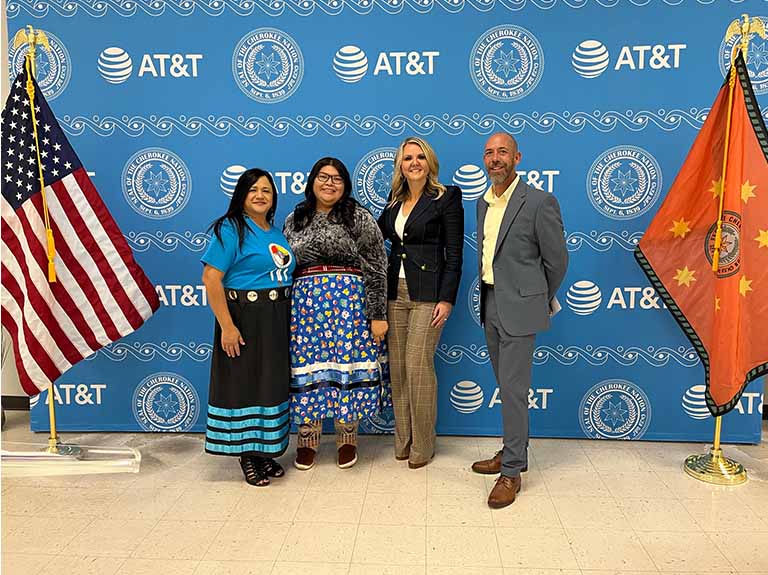Across industries, organizations are looking for innovative and cost-efficient ways to mitigate their greenhouse gas emissions, and they’re turning to technology for help. In late October, business, technology and climate leaders came together at VERGE 23 to accelerate solutions that will address today’s climate challenges, with a focus on how technology and connectivity can help us all reduce emissions.
As a leader in developing and deploying connectivity-driven climate solutions to reduce emissions, we know the critical role that connectivity plays in enabling many of these solutions. That’s why AT&T launched the Connected Climate Initiative (CCI) in 2021 to help fuel collaboration, research, solutions, and innovation. The CCI brings together climate leaders to unleash solutions like IoT, 5G, and edge computing, with the goal of reducing 1 gigaton, or a billion metric tons, of emissions by 2035. To date, we have 19 CCI participants, and we’re more than 15% of the way to our goal.
Our collaborators range from some of the largest companies, such as Microsoft, Deloitte and Salesforce, to startups spanning industries from technology, energy, and agriculture to transportation and manufacturing. The CCI also includes universities and non-profits, such as Texas A&M University, Purdue University, Carbon Trust, and Third Derivative.
At VERGE, we had the opportunity to lead a panel discussion with three of our CCI collaborators from varying sectors to dive into the role that connectivity is playing in their decarbonization strategies. These collaborators shared examples of how connectivity-driven solutions help them operate in more environmentally sustainable ways, while lowering costs and delivering more value for their customers.
- Rajiv Mukherjee, Sustainable Services Market Head at Cognizant, talked about the company’s joint efforts with AT&T to help enterprises achieve net-zero status as an integral part of their digital business transformation.
- Jason Straka, Product Manager for Verifi at GCP, discussed the company’s in-transit concrete management system, which automatically adds water and admixture to concrete on the way to construction sites to reduce waste and associated emissions. Thanks to IoT connectivity, GCP’s system is taking readings and sending them to onboard truck computers, which automatically adjusts the blend of concrete as needed.
- Ali Maleki, Chief Executive Officer at Traxen, discussed how the startup is using connectivity to power its semi-automated driving technologies for commercial trucks, which enable improvements in vehicle fuel efficiency and related emissions.
I was struck by the range of innovation that these speakers shared. Transportation, cement and building efficiency are diverse subjects, but each is striving for reduced emissions and using connectivity as a core component of their efforts. The speakers all agreed that a strong financial return on investment is a critical dependency for solutions that drive down emissions and that connectivity can help them achieve cost efficiencies needed to make a strong business case for investing in sustainability solutions.
In addition to hearing from leaders at companies like Cognizant, GCP, and Traxen about how they’ve integrated connectivity to reduce emissions, there were also discussions at VERGE about the next wave of connected climate solutions.
There were loads of examples of traditional Smart Climate Solutions related to buildings, transportation and energy, but one of the biggest trends at the event was a focus on Carbon Dioxide Removal (CDR) solutions which remove carbon dioxide (CO2) from the atmosphere. Connectivity solutions, like the Internet of Things, Fiber, 5G and Private Cellular Networks, can be key tools that innovators can use to bring these solutions to market.
VERGE showcased impactful emissions-reduction applications and exciting new climate technologies, but the best part of the event for me was connecting in person with CCI participants and other climate tech leaders. Sustainability is a pressing concern for all businesses and communities, and impactful innovation can only come from cross-industry collaboration.
To learn more about how Smart Climate Solutions can help your organization reach your climate goals, visit our AT&T Corporate Responsibility website.
Read more AT&T Corporate Responsibility news



